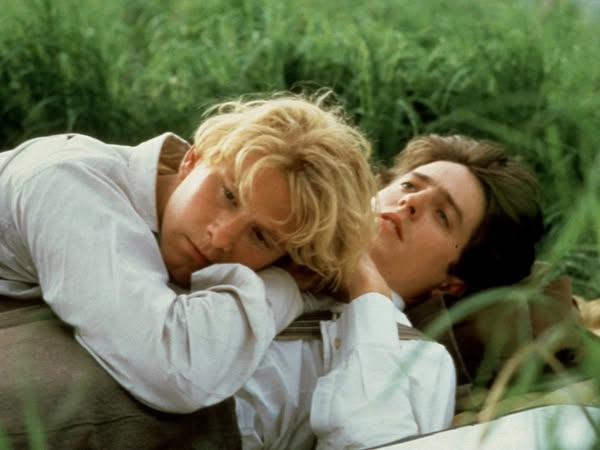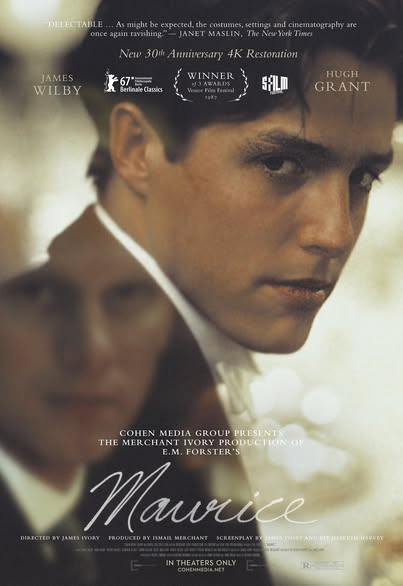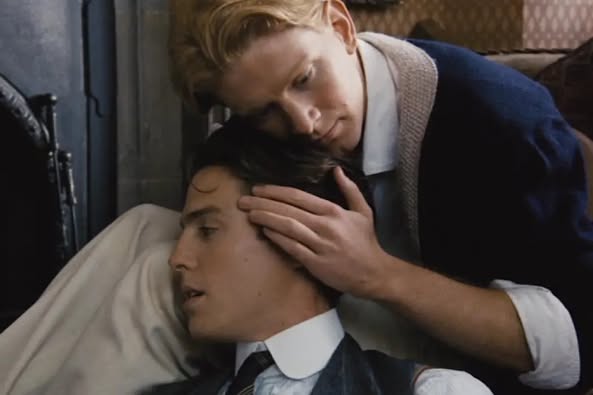Maurice (1987),

Maurice (1987) is a poignant drama directed by James Ivory, based on E.M. Forster’s posthumously published novel of the same name. Set in early 20th-century England, the film explores themes of love, identity, and societal expectations, particularly regarding homosexuality during a time when it was largely stigmatized.
The story follows Maurice Hall, played by James Wilby, from his days at Cambridge University through his struggles with his sexuality in a repressive society. As Maurice navigates his feelings for fellow student Clive Durham (Hugh Grant), the film delves into the complexities of their relationship. Clive is initially open to exploring their connection but ultimately succumbs to societal pressures, choosing to marry a woman and conform to conventional norms.

In contrast, Maurice’s journey is marked by a search for authenticity and acceptance. As he grapples with heartbreak and societal rejection, he eventually finds solace in his relationship with Alec Scudder (Rupert Graves), a gamekeeper who represents a more liberated and genuine approach to love. Their bond contrasts sharply with the earlier, more restrained relationship Maurice had with Clive, emphasizing the film’s exploration of different forms of love and connection.

James Ivory’s direction, coupled with Ismail Merchant’s production, creates a visually stunning film that captures the essence of the Edwardian era. The cinematography beautifully showcases the lush English countryside, enhancing the emotional depth of the narrative. The film’s score, composed by Richard Robbins, further underscores the poignant themes of longing and desire.
Maurice challenges the conventions of its time by portraying a same-sex relationship that ultimately leads to a hopeful resolution, a rarity in films of that era. The film’s ending, which diverges from the tragic conclusions often associated with LGBTQ+ narratives, offers a sense of optimism and fulfillment that resonates with audiences.

The performances are exceptional, particularly Wilby, whose portrayal of Maurice captures the character’s inner turmoil and evolution. Hugh Grant and Rupert Graves also deliver nuanced performances that enhance the film’s emotional depth.
Overall, Maurice is a beautifully crafted film that transcends its historical context to explore universal themes of love and self-acceptance. Its sensitive portrayal of the struggles faced by LGBTQ+ individuals in a repressive society remains relevant today, making it a significant contribution to both queer cinema and film as a whole. The film stands as a testament to the power of love in all its forms and the importance of living authentically.











